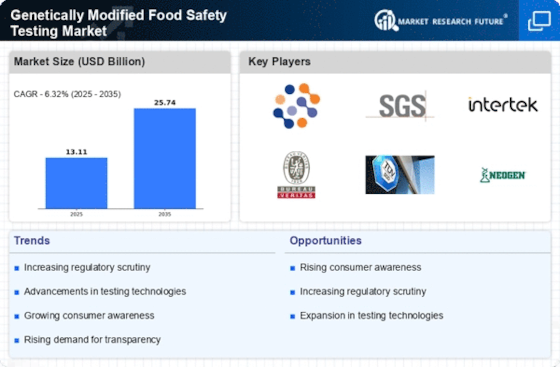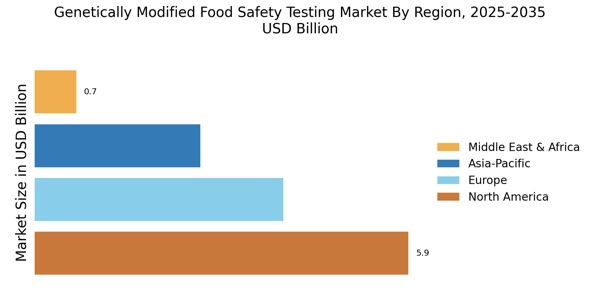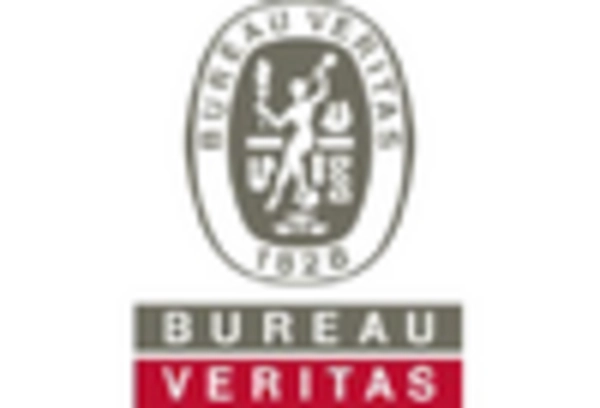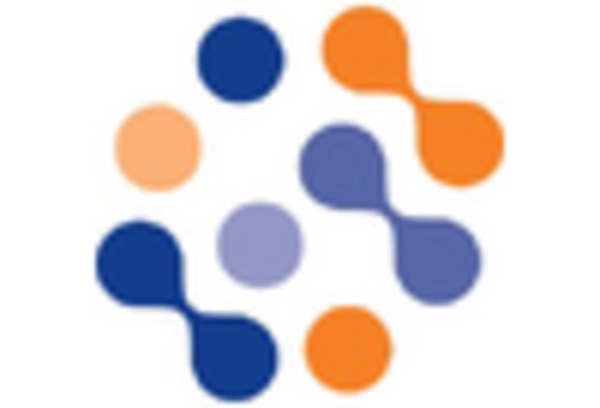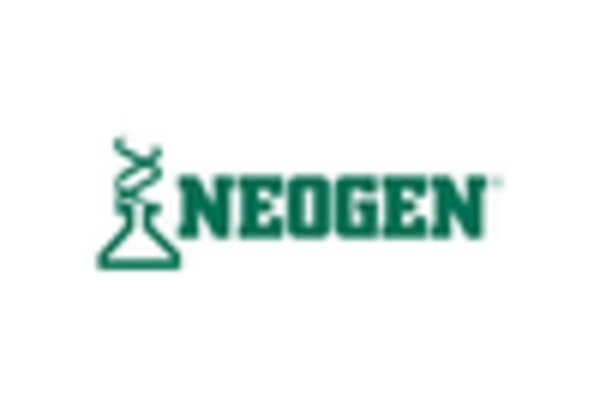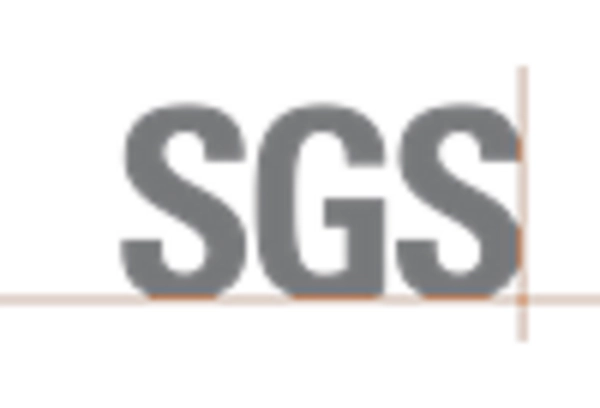Increased Regulatory Scrutiny
The Genetically Modified Food Safety Testing Market is experiencing heightened regulatory scrutiny as governments and international bodies implement stricter guidelines for food safety. This trend is driven by growing concerns over the potential health and environmental impacts of genetically modified organisms (GMOs). Regulatory agencies are increasingly demanding comprehensive testing protocols to ensure that GM foods are safe for consumption. For instance, the European Food Safety Authority has established rigorous assessment procedures for GMOs, which has led to a surge in demand for safety testing services. As a result, companies operating within the Genetically Modified Food Safety Testing Market are compelled to enhance their testing capabilities to comply with these evolving regulations, thereby fostering market growth.
Consumer Demand for Transparency
Consumer demand for transparency in food labeling is a driving force in the Genetically Modified Food Safety Testing Market. As consumers become more informed about food sources and production methods, there is a rising expectation for clear labeling of genetically modified products. This trend is prompting food manufacturers to seek reliable testing services to verify the non-GMO status of their products. Market Research Future indicates that approximately 70% of consumers prefer products labeled as non-GMO, which has led to an increase in testing services to ensure compliance with labeling requirements. The Genetically Modified Food Safety Testing Market is thus positioned to benefit from this shift towards transparency, as companies strive to meet consumer expectations.
Technological Advancements in Testing
Technological advancements are playing a pivotal role in shaping the Genetically Modified Food Safety Testing Market. Innovations in testing methodologies, such as CRISPR-based techniques and next-generation sequencing, are enhancing the accuracy and efficiency of GMO detection. These advancements enable quicker turnaround times for testing results, which is crucial for food manufacturers aiming to meet safety standards. According to recent data, the adoption of advanced testing technologies has increased by approximately 25% over the past few years, reflecting a growing trend towards more sophisticated testing solutions. Consequently, the Genetically Modified Food Safety Testing Market is likely to witness significant growth as companies invest in cutting-edge technologies to improve their testing processes.
Rising Incidences of Foodborne Illnesses
The rising incidences of foodborne illnesses are significantly influencing the Genetically Modified Food Safety Testing Market. As outbreaks of foodborne pathogens continue to pose serious health risks, there is an increasing emphasis on ensuring the safety of food products, including those derived from genetically modified sources. Regulatory bodies are responding to these concerns by mandating more rigorous testing protocols for food safety. Data suggests that foodborne illnesses affect millions of individuals annually, leading to heightened awareness and demand for effective testing solutions. Consequently, the Genetically Modified Food Safety Testing Market is likely to expand as stakeholders prioritize safety measures to mitigate risks associated with foodborne pathogens.
The Genetically Modified Food Safety Testing Access
The Genetically Modified Food Safety Testing Industry. As countries engage in international trade of agricultural products, the need for standardized testing protocols becomes increasingly critical. Many nations require stringent testing for GMOs to ensure compliance with import regulations, which drives demand for reliable testing services. For instance, countries with strict GMO regulations often necessitate comprehensive testing before allowing imports, thereby creating opportunities for testing laboratories. The Genetically Modified Food Safety Testing Market is thus poised for growth as businesses seek to navigate complex trade regulations and ensure their products meet safety standards for market access.


